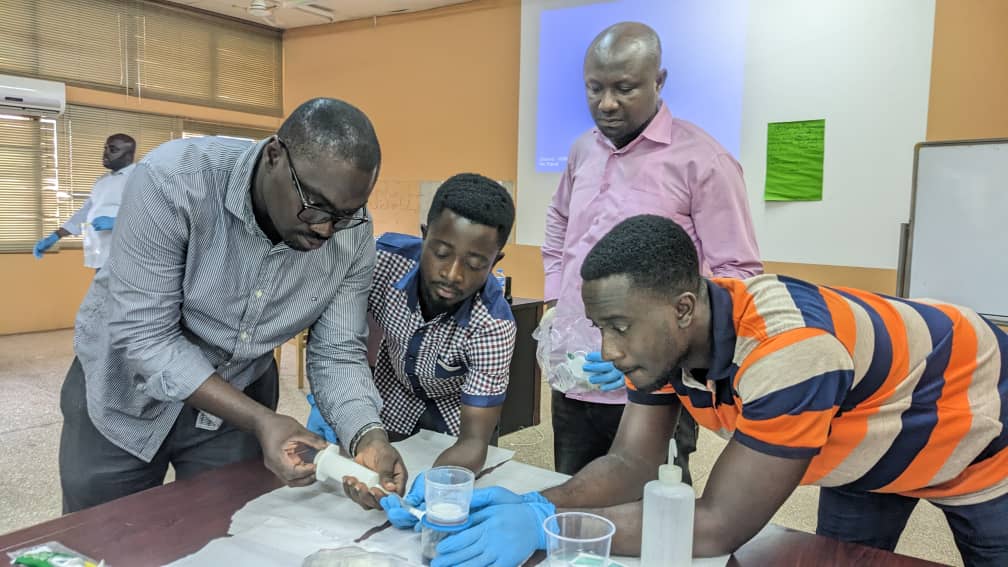Taking a Drinking Water Quality Testing course helps learners identify unsafe water in their communities. That is why GWC partnered with CAWST to deliver this important course in Ghana.
This course covered chemical, physical, and microbiological testing methods, including membrane filtration. In this photo, participants are taking water from different sources and putting it through a membrane filter. Whatever the filter caught went on a petri dish to determine how many bacteria colonies would grow. While some water quality testing kits only indicate if bacteria is present or absent, this method helps learners understand the level of contamination.
In the post-course survey, 85% of participants said the course would significantly improve their work and 90% said the realistic training scenarios gave them the confidence to use their new skills right away. The effects of this course will go far beyond the 22 participants as they bring their new knowledge back to their communities, teach it to others, and cause ripples of change across the country.
As with everything GWC does, this project was built on collaboration. While GWC provided partial funding and logistical support for the course, it was facilitated and co-funded by CAWST (Centre for Affordable Water and Sanitation Technology). Two staff members from Research and Development without Borders co-facilitated the training. We were also grateful to the Ghana Water Company for hosting the course at the Ghana Water Institute.
Currently, 76% of households in Ghana are at risk of drinking contaminated water. Global Water Center will continue providing courses and investing in our partners as they work hard to improve access to safe water throughout the country.


Water quality assessment in Developing countries is critical in building a potable water for community
We agree! Thanks for your encouraging comment.